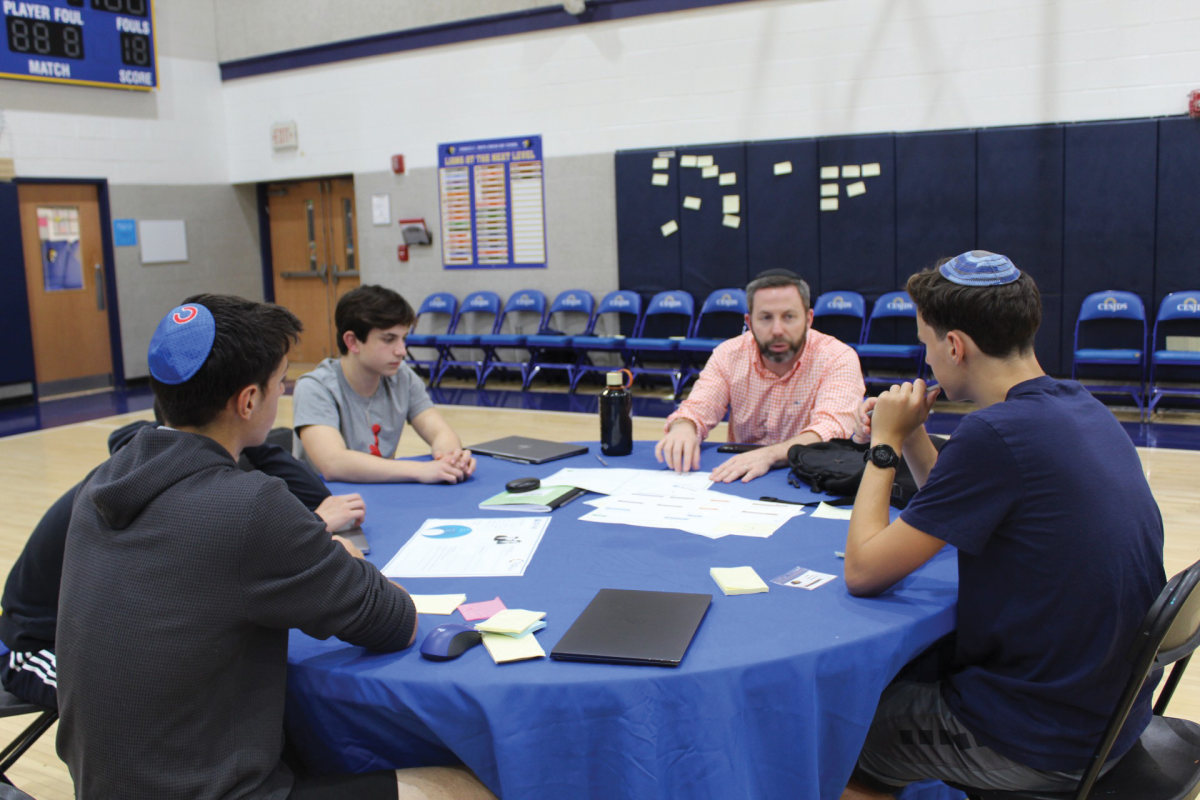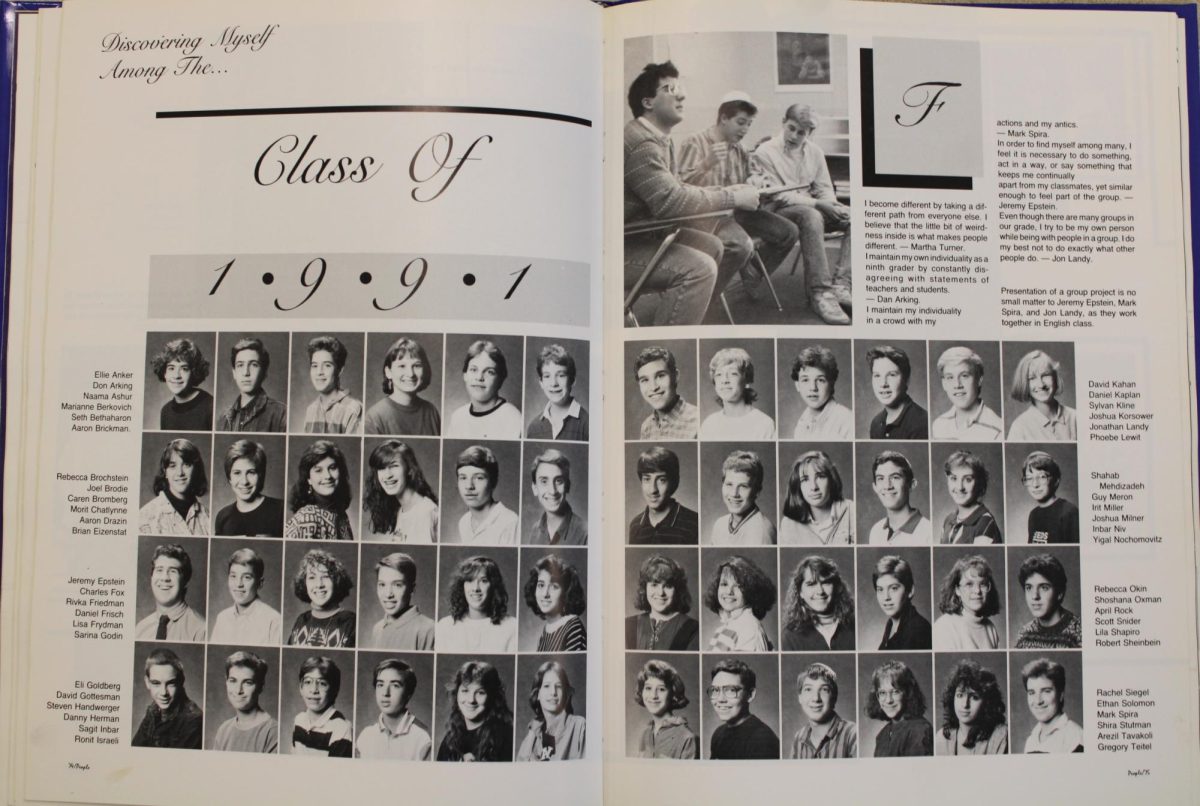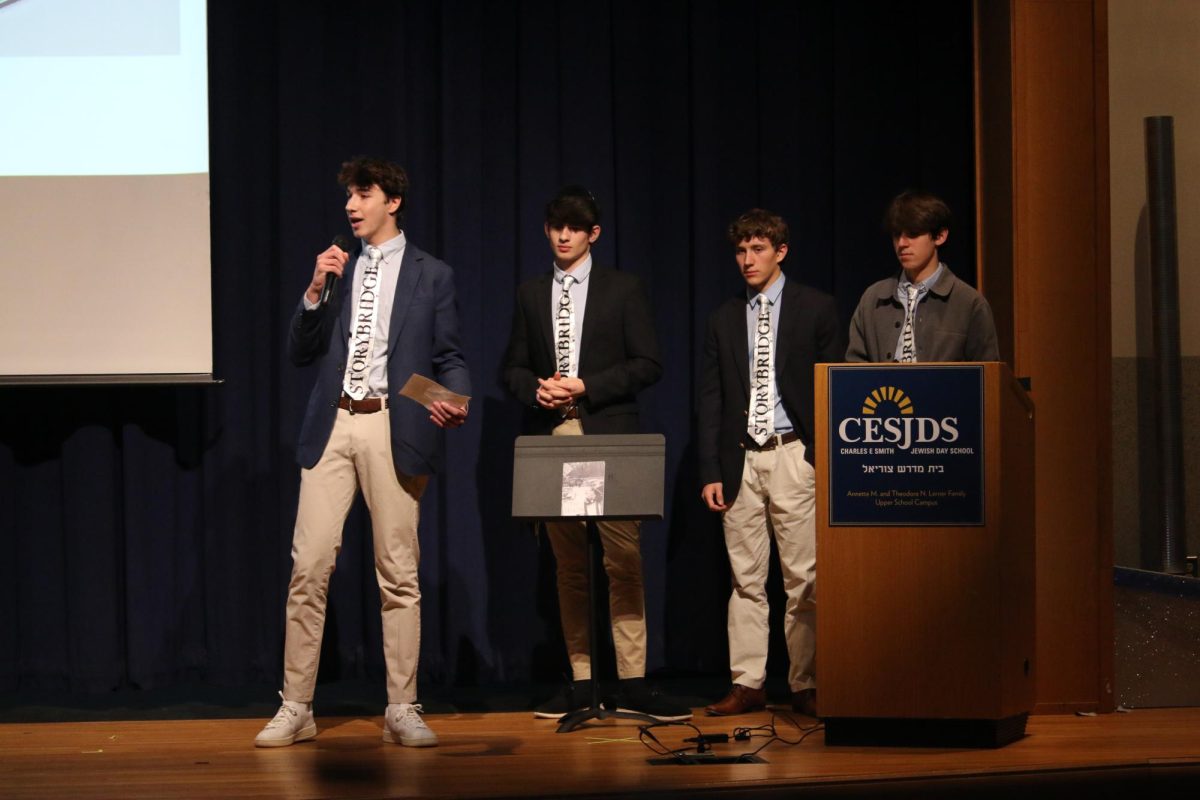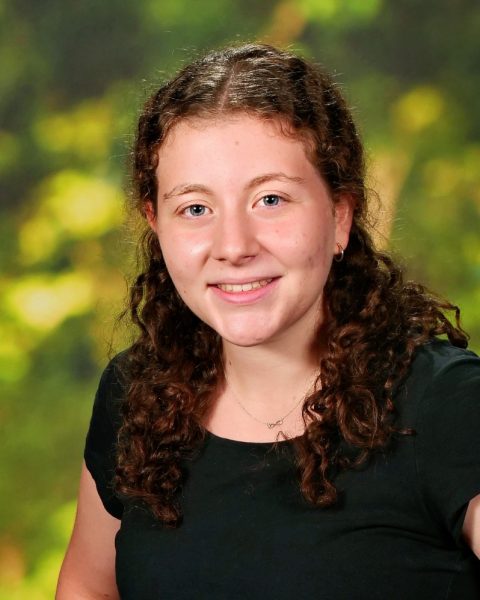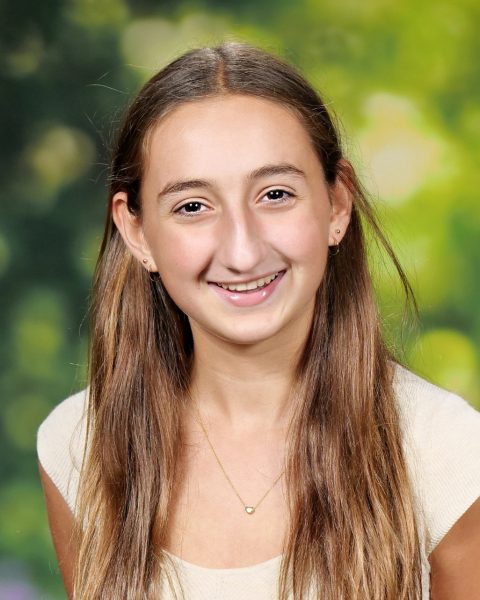Starting a business from scratch in high school seemed daunting to sophomore Noah Sacks. However, he was able to embrace and work through the challenges with the help of the CESJDS Sharon and Jacob Benus (z”l) Social Entrepreneurship Program, new to the 2024-2025 school year.
After months of discussion and preparation to create the program, JDS launched the Social Entrepreneurship Program on Sept. 18 with a two-day workshop. Thirty-five students participated in the workshop in the Upper School gym, where they designed prototypes intended to improve the world.
In accordance with JDS’s core values, the program promotes the idea of Tikkun Olam (repairing the world) as students engineer ideas that address real-world issues. These ideas were developed during the workshop to establish a specific final product at the end of this school year.
“We don’t just want kids to run a business and make money,” High School Principal and Upper School Campus Head Lisa Vardi said. “It’s about how you can take your ideas and build a business that could positively impact the world.”
The two-day boot camp was led by entrepreneur Henrik Scheel. Scheel worked in Silicon Valley with various startups, such as the consulting firm Chat Nexus, and has taught several Jewish schools and organizations, including Gideon Hausner Jewish Day School in Palo Alto, California, about entrepreneurship. Scheels’ different programs and past boot camps are all on his business website, “Start Up Experience”.
During the boot camp, students split up into small groups and brainstormed ideas for products that would benefit society. The students learned to overcome challenges, such as revising their products based on changes in demand and clientele. Participants learned that these challenges might arise with their prototype and worked on coming up with a final idea.
Sacks’ group’s idea was to create an app for senior citizens to plan social events for themselves. Sacks joined the program to build entrepreneurial skills that he can use later in life.
“[Bootcamp taught me] how to look at the world from different perspectives,” Sacks said. “We’re working on an app to help scale back senior loneliness. That’s a different perspective than I had ever thought about before.”
Following the workshop, the Entrepreneurship Fellows will attend weekly meetings with Assistant Director of Athletics and Social Entrepreneurship Program Coordinator Matthew Landy (‘18), where they will continue to develop their ideas and refer to lesson modules provided by Scheel.
In January, the program will culminate with a shark-tank style competition. The whole school will attend this competition and get to listen to each pitch. A set of volunteer alumni and parent judges will decide which idea seems most viable the winners $1,000 toward developing their prototype.
This will be funded by the Blecher family grant in honor of Sharon and Jacob Benus (z”l), who deeply believed in making an impact on people through entrepreneurship. The funding from the grant is allocated by the directors to different areas where they best see fit, such as the hiring of Scheel and the $1,000 grant.
“I hope this serves as an opportunity for students to learn more about the importance of social responsibility and what entrepreneurship entails,” Landy said. “Also, to find a way to get outside of the classroom and that traditional thinking and to really utilize their creativity.”
From the Wellness to Stem Fellowships, JDS offers students a variety of ways to pursue interests outside the classroom. The Social Entrepreneurship Program, however, allows students to take their participation beyond the scope of JDS by creating prototypes that can be pitched and used in the world outside of school.
“A lot of great learning happens in the classroom,” Vardi said. “However, a lot of great learning also takes place outside of the classroom. This is an opportunity for students to think about what skills they want to hone, how they want to grow in their Jewish identity, how they want to lean into their values and just think about things differently than they do in the classroom.”


